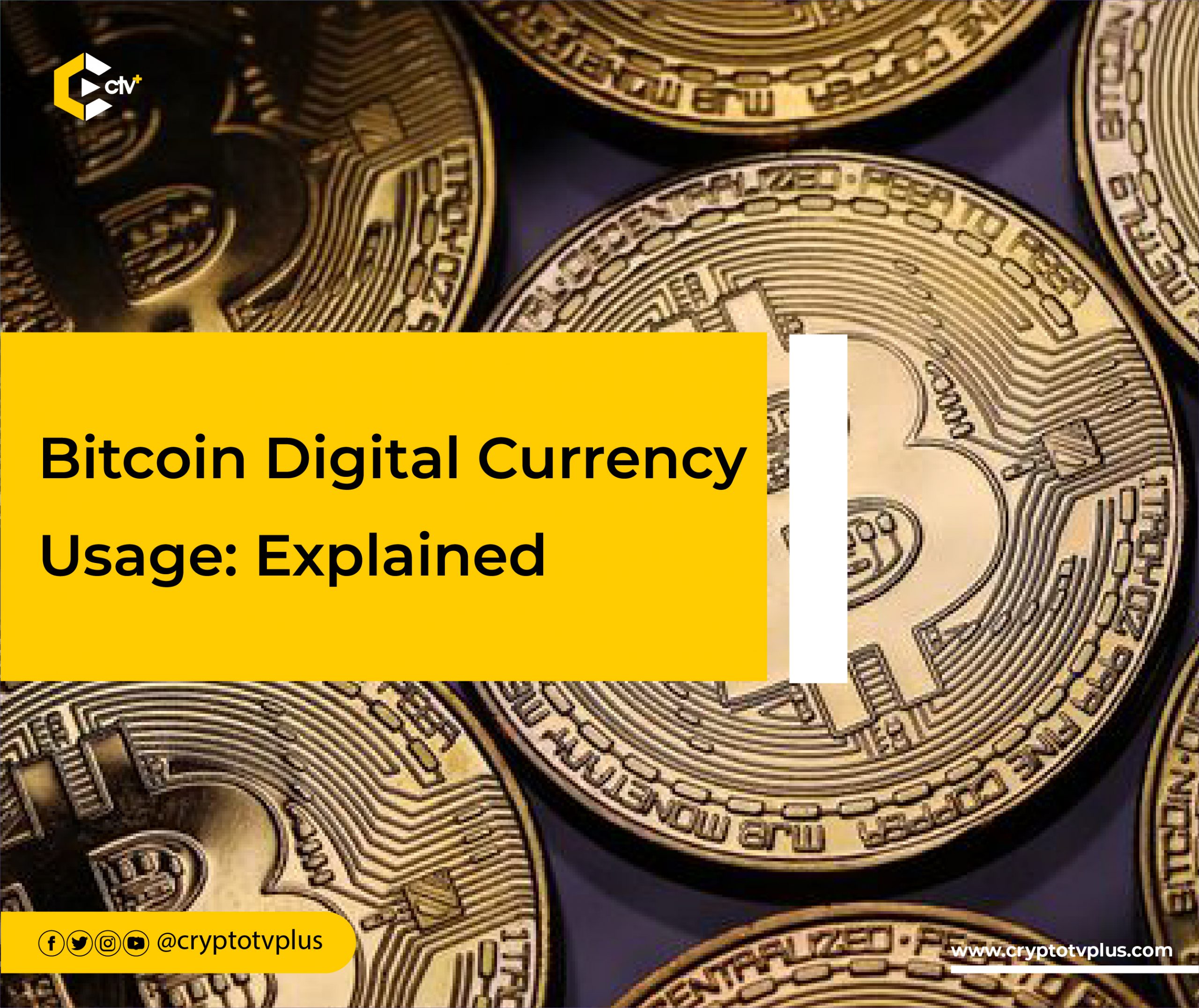Education
Bitcoin Digital Currency Usage: Explained

Without a single administration or central bank, the peer-to-peer bitcoin network allows users to send money directly to one another using Bitcoin, which is a decentralized digital currency. Since its creation, Bitcoin has gained a significant amount of attention and has become a popular topic of discussion in the financial and technology industries. In this article, we will delve into the uses and advantages of Bitcoin, as well as its potential risks and limitations.
Uses of bitcoin
Bitcoin can be used for a variety of transactions, including online purchases, money transfers, and international payments. One of the main advantages of using Bitcoin is that it allows for quick and easy transactions without the need for intermediaries such as banks. This can greatly reduce transaction fees and make it possible to conduct transactions more privately and securely. Additionally, Bitcoin can be used to purchase goods and services from businesses that accept it as a form of payment. Transactions involving Bitcoin are made possible through the use of a Bitcoin wallet.
A Bitcoin wallet is a digital wallet that allows users to store, send, and receive Bitcoins. It generates a unique “address” for the user, which acts like a bank account number for Bitcoin transactions. To make a transaction, the user inputs the recipient’s address and the amount of Bitcoins to be sent. The transaction is then broadcast to the Bitcoin network and is verified by other users called miners. Once the transaction is verified and recorded on the blockchain, it is considered complete and the Bitcoins are transferred to the recipient’s wallet. It’s important to remember that Bitcoin transactions are irreversible, which means that once a transaction is made, it can’t be undone.
Advantages of bitcoin
Bitcoin offers a number of advantages over traditional forms of currency. One of the main advantages is that it is decentralized, meaning that it is not controlled by a central authority, such as a government or bank. This allows for a greater degree of financial freedom and independence. Additionally, Bitcoin transactions are recorded on a public ledger called the blockchain, which makes them transparent and secure. This can greatly reduce the risk of fraud and hacking. Bitcoin also offers the potential for greater financial inclusion, as it can be used by individuals who may not have access to traditional banking services.
Risks and limitations
While Bitcoin offers a number of advantages, it also has its risks and limitations. One of the main risks is that it is highly volatile, meaning that its value can fluctuate greatly in a short period of time. This can make it difficult for individuals and businesses to use it as a stable form of currency. Additionally, Bitcoin transactions are irreversible, which means that if a mistake is made, there is no way to reverse the transaction. This can significantly increase the risk of fraud and hacking. Additionally, the use of Bitcoin is still not widely accepted and it may be difficult to find merchants that accept it as a form of payment.
Regulation and legal status
One of the main challenges facing Bitcoin and other digital currencies is the lack of regulation and legal status. Because it operates outside of traditional financial systems, it can be difficult for governments to regulate and monitor its use. This can lead to potential risks such as money laundering and illegal activities. However, some countries have started to take steps to regulate the use of digital currencies. For example, some countries have implemented strict regulations on digital currency exchanges, while others have recognized digital currencies as legitimate forms of payment.
Investment
Another use of Bitcoin is as an investment. Because of its high volatility, the value of Bitcoin can fluctuate greatly, making it a potentially profitable investment. However, it is also considered a high-risk investment, and the value of Bitcoin can also drop significantly. As such, many financial experts advise caution when investing in Bitcoin, and recommend only investing what you can afford to lose.
Future of bitcoin
The future of Bitcoin and other digital currencies is uncertain. While it has the potential to greatly impact the way we conduct transactions, it is still a relatively new technology and its future use and acceptance are yet to be determined. It may be adopted on a larger scale in the future, or it may be replaced by newer, more advanced technologies. It is important for individuals and businesses to stay informed about the developments in digital currencies, and to be prepared for potential changes in the way we conduct transactions.
Conclusion
Bitcoin is a decentralized digital currency that offers a number of advantages over traditional forms of currency, including quick and easy transactions, transparency and security, and the potential for greater financial inclusion. However, it also has its risks and limitations, including volatility, irreversible transactions, and lack of acceptance. While Bitcoin is still a relatively new technology and its future is uncertain, it has the potential to greatly impact the way we conduct transactions and may lead to a shift towards a cashless society. The future of Bitcoin and other digital currencies is uncertain and it is important to stay informed about the developments in this field. It’s important to use it responsibly and with caution.
About Author
Elena Gardner is a tech enthusiast who has worked 6+ years in the industry with Fortune 500 Companies. Her interests include Blockchain, Bitcoin Wallets, and Web 3.0.

























1 Comment